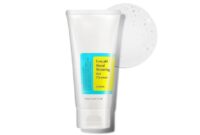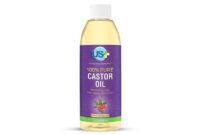If you’re constantly dealing with a runny nose, sore throat, and that annoying feeling of mucus dripping down the back of your throat, you may be experiencing post nasal drip. This common condition occurs when excess mucus accumulates in your nasal passages and then trickles down into the back of your throat.
While post nasal drip can be uncomfortable and frustrating, there are plenty of products out there that can help you manage the symptoms. But with so many options available, it can be overwhelming to decide which product is the best fit for you.
Should you opt for a nasal spray? Or maybe try a neti pot? And what about saline sprays or irrigation solutions? With so many choices, it’s important to understand how each product works and what their pros and cons are.
In this article, we’ll explore the various products that can help alleviate post nasal drip, so you can find the one that works best for you.
Understanding Post Nasal Drip and Its Causes
If you’re experiencing that pesky sensation of mucus dripping down the back of your throat, it could be due to post nasal drip, a common condition caused by excessive mucus production in the nasal passages.
This condition occurs when the mucus produced by your sinuses becomes too thick and sticks to the lining of your nasal passages, making it difficult to move it out of your nose. This blockage can cause the mucus to build up and eventually drip down the back of your throat.
The causes of post nasal drip can vary, but some of the most common include allergies, sinus infections, and colds. Other factors, such as certain medications, weather changes, and even pregnancy, can also contribute to this condition.
Symptoms of post nasal drip include a constant need to clear your throat, coughing, and a feeling of congestion in the back of your throat. By understanding the causes and symptoms of post nasal drip, you can take the necessary steps to find the best product to relieve your symptoms and get back to feeling your best.
Nasal Sprays: Pros and Cons
You’ll find that nasal sprays can be a double-edged sword, with their ability to both provide quick relief and potentially cause dependency. Nasal sprays work by reducing inflammation and swelling in the nasal passages, which can alleviate post nasal drip symptoms.
However, overuse of nasal sprays can lead to a condition called nasal spray addiction, where the body becomes dependent on the spray to function properly. If you’re looking for a natural alternative to nasal sprays, there are a few options to consider.
One option is using a saline nasal rinse, which can help flush out irritants and mucus from the nasal passages. Another option is using essential oils, such as eucalyptus or peppermint, which can help reduce inflammation and promote easier breathing.
It’s important to talk to your doctor before trying any new treatments, especially if you have any underlying medical conditions or are taking any medications.
Neti Pots and Sinus Rinses: How They Work
Using a neti pot or sinus rinse can be a great way to alleviate congestion and promote nasal hygiene. These devices work by flushing out mucus and irritants from your sinuses, which can reduce inflammation and prevent infections.
One of the main benefits of using a neti pot is that it can provide relief for those suffering from post nasal drip. This condition occurs when excess mucus accumulates in the back of the throat, causing discomfort and irritation. By using a neti pot regularly, you can help to keep your nasal passages clear and prevent the buildup of mucus.
In addition, using a neti pot can also help to reduce the frequency and severity of sinus headaches, as well as improve your overall sinus health. So if you’re looking for a natural and effective way to alleviate nasal congestion and promote sinus health, consider incorporating a neti pot or sinus rinse into your daily routine.
Saline Sprays and Irrigation Solutions: A Gentle Approach
For a gentle approach to nasal hygiene, consider incorporating saline sprays or irrigation solutions into your daily routine. These products can help to soothe and moisturize your nasal passages, alleviating post-nasal drip and other sinus-related symptoms. By regularly irrigating your sinuses, you may also reduce your exposure to common allergy triggers, such as pollen and dust.
Saline sprays and irrigation solutions are easy to use and widely available at drugstores and online retailers. Simply follow the instructions on the packaging to administer the solution, either through a spray bottle or a neti pot. With consistent use, you may find that your sinuses feel clearer and less congested, allowing you to breathe more easily and enjoy your daily activities without discomfort.
Remember, taking care of your sinuses is an important step in promoting overall health and wellness, so consider making nasal hygiene a regular part of your self-care routine.
Other Remedies and Lifestyle Changes for Managing Post Nasal Drip
Feeling congested and frustrated with sinus drainage? Try incorporating some lifestyle changes and natural remedies to manage those pesky symptoms.
First, consider making diet changes to reduce inflammation and mucus production. Avoid dairy and processed foods, which can increase mucus production, and instead focus on incorporating foods rich in vitamin C and antioxidants, such as fruits and vegetables.
In addition to dietary changes, consider getting allergy testing to identify any potential allergens that may be contributing to your post nasal drip. Once identified, take steps to avoid exposure to these allergens, such as using an air purifier or avoiding certain foods.
By making these lifestyle changes and incorporating natural remedies, you can manage your post nasal drip and breathe easier.
Frequently Asked Questions
Can post nasal drip cause ear infections?
You may be wondering if post nasal drip can cause ear infections. The short answer is yes, it can.
When mucus from your nose drips down the back of your throat and into your ears, it can create a breeding ground for bacteria. This can lead to inflammation and ear pain.
But don’t worry, there are treatment options available. Over-the-counter decongestants and antihistamines can help reduce the amount of mucus in your nose and throat.
If your symptoms persist, it’s important to see a doctor for a proper diagnosis and treatment plan. Don’t let ear pain caused by post nasal drip go untreated.
Is there a specific diet that can help alleviate post nasal drip symptoms?
If you’re dealing with post nasal drip, incorporating anti-inflammatory foods into your diet can help alleviate symptoms. Foods like leafy greens, berries, and fatty fish can all help reduce inflammation in the body.
Additionally, staying hydrated is crucial for thinning out mucus and making it easier to clear out of your system. You may also want to consider taking supplements or consuming herbs that have anti-inflammatory properties, such as turmeric or ginger.
While there’s no one specific diet that’ll cure post nasal drip, making healthy choices can certainly help manage symptoms and improve overall health.
Can allergies cause post nasal drip even if there are no other allergy symptoms present?
Do allergies cause post nasal drip? Absolutely! Even if you don’t experience traditional allergy symptoms like sneezing or itchy eyes, post nasal drip can still be a result of allergies.
The best way to confirm this is through allergy testing, which can identify specific allergens that may be triggering your symptoms. Once you know what you’re allergic to, you can take steps to avoid those allergens or seek out treatment options like allergy shots or medication.
There are also over-the-counter products that can offer some relief, but it’s important to address the underlying cause of your post nasal drip for long-term relief. So if you’re experiencing this pesky symptom, don’t ignore it – get to the root of the problem and find the right treatment for you.
What is the difference between a humidifier and a vaporizer, and which is better for post nasal drip?
If you’re wondering about the difference between a humidifier and a vaporizer and which is better for post nasal drip, here’s what you need to know.
Both devices add moisture to the air, but they do so in different ways. A humidifier releases cool mist into the air, while a vaporizer heats water to create steam.
The benefits of each depend on your individual needs. For example, a humidifier may be better if you have children or pets because there’s no risk of accidental burns from the hot steam. On the other hand, a vaporizer may be more effective at relieving congestion because the warm steam can help open up the nasal passages.
Ultimately, the choice between a humidifier and a vaporizer comes down to personal preference and the specific symptoms you’re experiencing.
Can post nasal drip be a sign of a more serious health condition?
You may be wondering if post nasal drip is a sign of a more serious health condition. The truth is, it can be.
Sinus infections and allergies are common causes of post nasal drip, but it can also be a symptom of more serious conditions such as nasal polyps or even cancer. However, it’s important to remember that these are rare cases and most often post nasal drip is not a cause for concern.
If you do experience chronic post nasal drip or other symptoms such as facial pain or pressure, it’s always best to consult with a healthcare professional.
In terms of managing post nasal drip, there are various treatment options and home remedies available. These include using a saline nasal spray, staying hydrated, avoiding irritants such as smoke, and using a humidifier or vaporizer.
It’s important to find what works best for you and your individual needs.
Conclusion
Congratulations! You’ve just learned about the best products for post nasal drip.
With the knowledge you’ve gained, you’re now equipped to tackle this pesky condition head-on.
Remember, post nasal drip can be caused by a variety of factors, so it’s important to identify the root cause before deciding on a treatment plan.
If you’re looking for a quick fix, nasal sprays may be the way to go. They offer fast relief and are easy to use. However, they can also be habit-forming and may cause rebound congestion if overused.
On the other hand, neti pots and saline sprays provide a gentler approach to clearing out your sinuses. You may need to invest a little more time and effort, but the benefits are worth it.
One hypothetical example of the importance of identifying the root cause of post nasal drip is a person who suffers from chronic sinusitis. Instead of just relying on over-the-counter remedies, they seek medical attention and discover that their sinusitis is caused by a fungal infection.
By treating the underlying cause, they’re able to finally find relief from their post nasal drip.
So, don’t be afraid to seek professional help if your post nasal drip persists even with at-home remedies.


